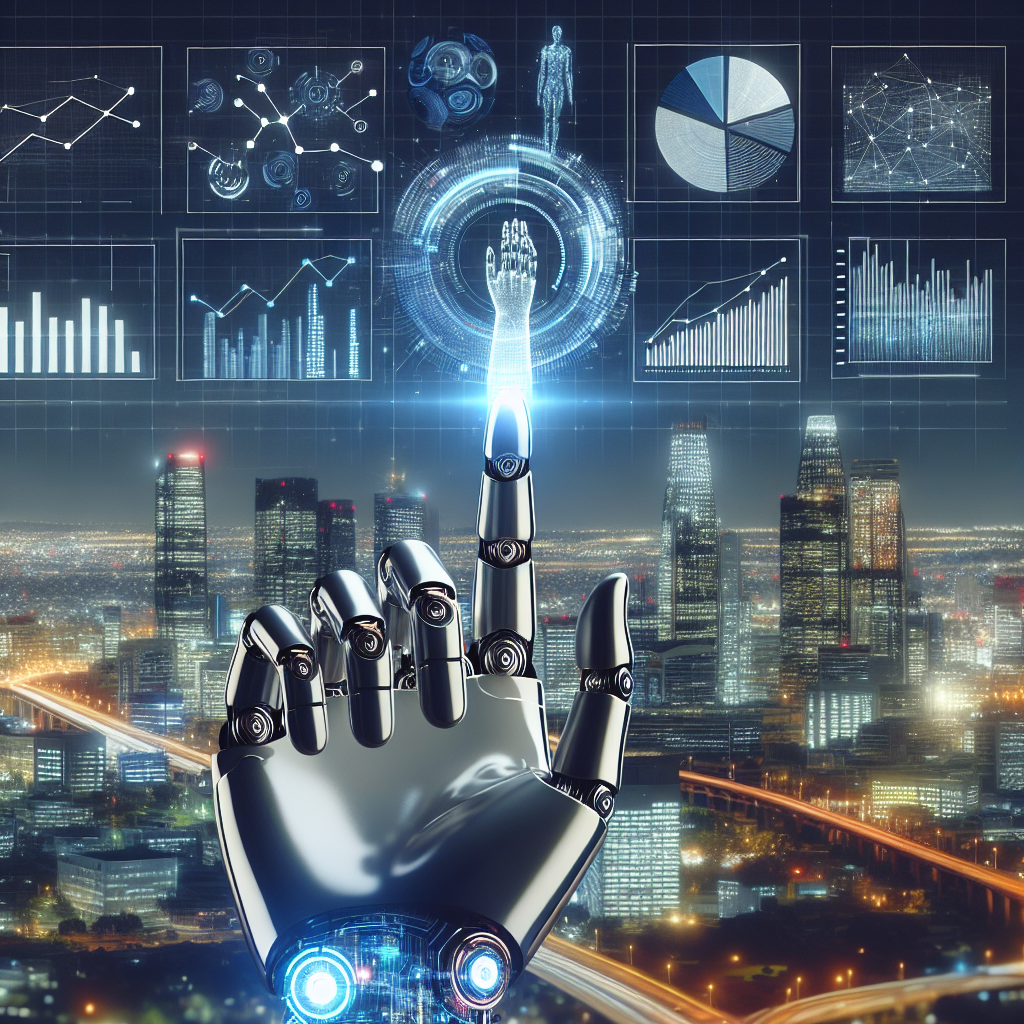Introduction
Business intelligence (BI) has been a crucial tool for organizations to make informed decisions based on data-driven insights. With the advancements in artificial intelligence (AI), the future of business intelligence is set to be revolutionized. AI technologies are enhancing BI tools by providing more accurate predictions, real-time analysis, and personalized recommendations.
The integration of AI in BI is transforming the way businesses operate, allowing them to gain a competitive edge in their respective industries. In this article, we will explore the future of business intelligence with AI and its implications for organizations.
AI-powered Business Intelligence
AI-powered business intelligence is the next frontier in data analytics. AI algorithms are being used to automate processes, analyze complex datasets, and extract valuable insights from data. These advanced capabilities are revolutionizing the way organizations make decisions and optimize their operations.
One of the key benefits of AI-powered BI is the ability to process and analyze large volumes of data in real-time. Traditional BI tools often struggle to handle massive amounts of data, leading to delays in decision-making. AI algorithms can quickly process data from various sources and provide instant insights, enabling organizations to make faster and more informed decisions.
AI-powered BI tools also offer predictive analytics capabilities, allowing organizations to forecast future trends and outcomes based on historical data. These predictions help businesses anticipate market changes, identify potential risks, and capitalize on new opportunities. By leveraging AI-powered predictive analytics, organizations can stay ahead of the competition and make proactive decisions to drive growth.
Another key advantage of AI-powered BI is the ability to provide personalized recommendations and insights. AI algorithms can analyze individual user behavior, preferences, and interactions to deliver tailored recommendations and insights. This personalization enhances the user experience and enables organizations to better engage with their customers, leading to increased loyalty and retention.
AI-powered BI tools are also improving data visualization and reporting capabilities. AI algorithms can automatically generate interactive visualizations and reports, making it easier for users to interpret complex data and share insights with stakeholders. These advanced visualization capabilities enable organizations to communicate data-driven insights effectively and drive collaboration across teams.
Challenges and Opportunities
While AI-powered BI offers numerous benefits, there are also challenges that organizations need to address. One of the key challenges is the integration of AI technologies with existing BI systems. Many organizations have invested heavily in traditional BI tools and processes, making it difficult to transition to AI-powered solutions. Organizations need to carefully plan and strategize their AI adoption to ensure a smooth transition and maximize the benefits of AI-powered BI.
Another challenge is the lack of skilled AI talent. Building and deploying AI-powered BI solutions require expertise in AI algorithms, data science, and machine learning. Organizations need to invest in training and upskilling their workforce to leverage AI technologies effectively. Collaborating with AI experts and data scientists can also help organizations overcome the talent shortage and accelerate their AI adoption.
Despite these challenges, AI-powered BI presents numerous opportunities for organizations to drive innovation and growth. By harnessing the power of AI algorithms, organizations can unlock new insights, automate processes, and enhance decision-making capabilities. AI-powered BI enables organizations to gain a competitive edge, improve operational efficiency, and deliver superior customer experiences.
FAQs
Q: What are the key benefits of AI-powered business intelligence?
A: AI-powered BI offers several key benefits, including real-time analysis, predictive analytics, personalized recommendations, and enhanced data visualization capabilities. These benefits enable organizations to make faster decisions, anticipate market changes, engage with customers effectively, and communicate data-driven insights more efficiently.
Q: How can organizations overcome the challenges of integrating AI technologies with existing BI systems?
A: Organizations can overcome the challenges of integrating AI technologies by carefully planning their AI adoption, investing in training and upskilling their workforce, and collaborating with AI experts and data scientists. By strategically implementing AI-powered BI solutions, organizations can successfully transition to AI technologies and maximize their benefits.
Q: What opportunities does AI-powered business intelligence present for organizations?
A: AI-powered BI presents numerous opportunities for organizations to drive innovation and growth. By leveraging AI algorithms, organizations can unlock new insights, automate processes, and enhance decision-making capabilities. AI-powered BI enables organizations to gain a competitive edge, improve operational efficiency, and deliver superior customer experiences.
Conclusion
The future of business intelligence with AI is bright, with organizations leveraging AI technologies to gain a competitive edge and drive growth. AI-powered BI tools are transforming the way businesses operate, enabling faster decision-making, predictive analytics, personalized recommendations, and enhanced data visualization capabilities. While there are challenges to overcome, the opportunities presented by AI-powered BI are immense, allowing organizations to innovate, optimize their operations, and deliver superior customer experiences. By embracing AI technologies, organizations can stay ahead of the competition and thrive in the data-driven future.

